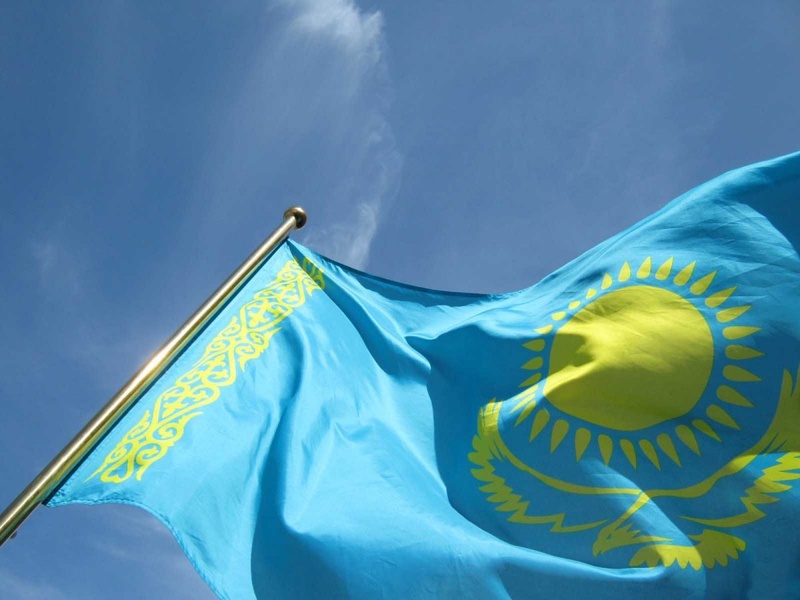NUR-SULTAN – An online seminar on European human rights standards in law enforcement was organized by the European Union and Council of Europe Central Asia Rule of Law Program jointly with Kazakhstan’s Human Rights Commission and the Institute Sorbonne-Kazakhstan Abai University on March 25, reported Zakon.kz.

The national flag of Kazakhstan.
More than 235 legal professionals including prosecutors, police officers, lawyers, professors, and law students took part in the event.
In his opening remarks, Prosecutor General Berik Asylov reiterated that human beings with their rights and freedoms represent the ultimate value that is enshrined in the Constitution of Kazakhstan. He said that Kazakhstan is carrying out systematic reforms aiming at guaranteeing universal human rights protection in the country.
According to the Chairman of the Commission on Human Rights, member of the Venice Commission of the Council of Europe from Kazakhstan Igor Rogov, Kazakhstan has become a full-fledged adherent of international law and a party to more than seventy multilateral universal international treaties in the field of human rights. Including the eight main universal human rights conventions of the UN, which are international instruments for the protection of human rights.
One of the results of Kazakhstan’s targeted reform policy aimed at promoting human rights and ensuring the rule of law was its re-election as a member of the UN Human Rights Council for 2022-2024. This will give a new impetus to the country to further democratize society and promote the protection and observance of the basic principles and norms of human rights, Rogov said.
The seminar also focused on freedom of assembly and association, relevant standards for the prohibition of ill-treatment in light of the case-law of the European Court of Human Rights and the Council of Europe instruments. Key presentations were made by the Council of Europe and the European Court of Human Rights experts.
The event was organized in the framework of the action HELP in Central Asia within the Central Asia Rule of Law Program 2020-2023, which is a joint initiative, co-funded by the European Union and the Council of Europe and implemented by the Council of Europe.
HELP in Central Asia aims at improving the knowledge and skills of justice professionals in the area of human rights and ensuring the application of human rights principles in their daily work in five countries of Central Asia including Kazakhstan, Kyrgyzstan, Tajikistan, Turkmenistan and Uzbekistan.
